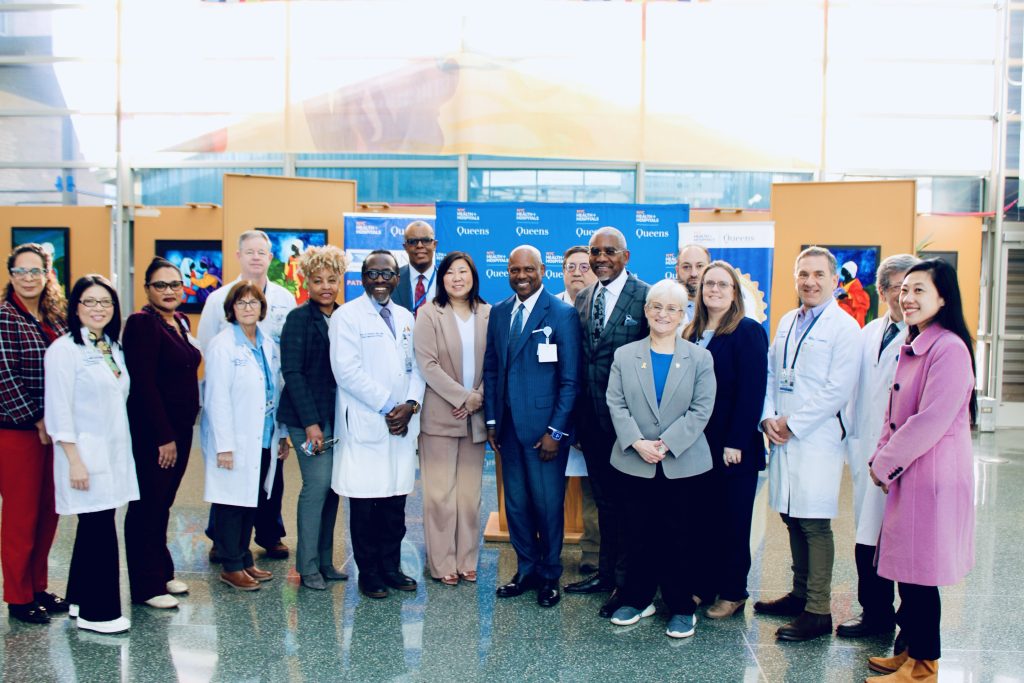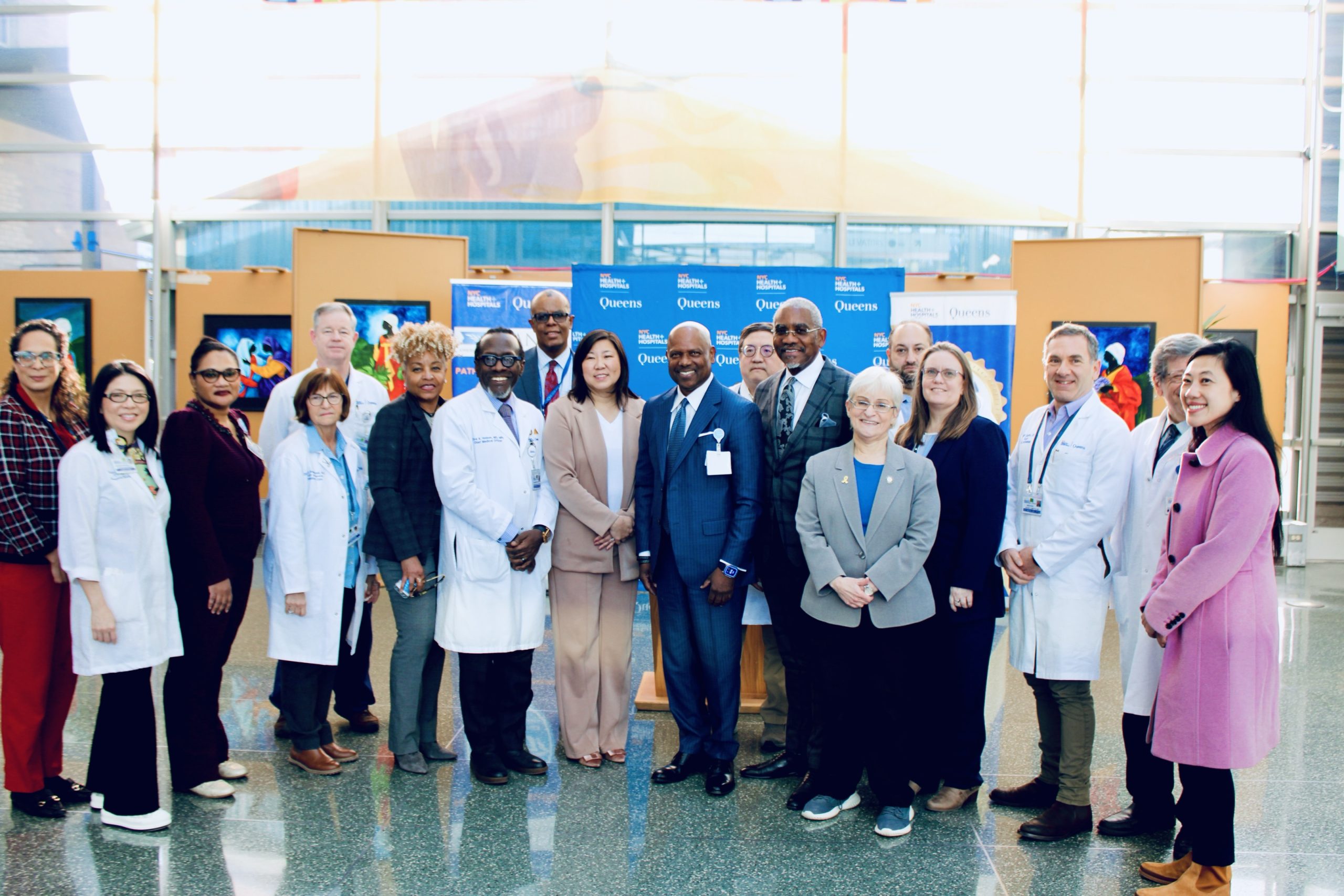
Courtesy Congresswoman Grace Meng
Health Care or Handouts? Queens Faces a Reckoning
By MOHAMED FARGHALY
mfarghaly@queensledger.com
As federal lawmakers and local communities react to the sweeping Medicaid cuts signed into law through President Trump’s “One Big Beautiful Bill Act,” Queens Congresswoman Grace Meng has emerged as one of the loudest voices warning of the potential fallout. Speaking from her district — one of the most diverse and densely populated in the country — Meng painted a sobering picture of what’s at stake: deep reductions to Medicaid that could destabilize hospitals, shutter nursing homes, and force working families into financial crisis just to access basic care.
While the White House touts the bill’s tax breaks, Meng and her colleagues say the real story is about what’s being taken away — from seniors, low-income residents, and even middle-class families who rely on Medicaid-supported services to survive. Across Queens and the city at large, the concern is growing: this isn’t just a policy shift — it’s a direct threat to healthcare as millions of New Yorkers know it.
“A lot of these cuts are going towards Medicaid,” said Meng, who has represented parts of Queens in Congress since 2013. “I think people have misconceptions about Medicaid. They think it’s just like, you know, the federal government giving people a check, but it’s actually money that’s going to our hospitals. It’s money that goes to our community health centers, and everyone benefits from better health care.”
Meng said the new law represents the largest reduction in healthcare spending in U.S. history, cutting roughly $1 trillion from Medicaid over the next decade. She believes the consequences for New Yorkers will be significant.
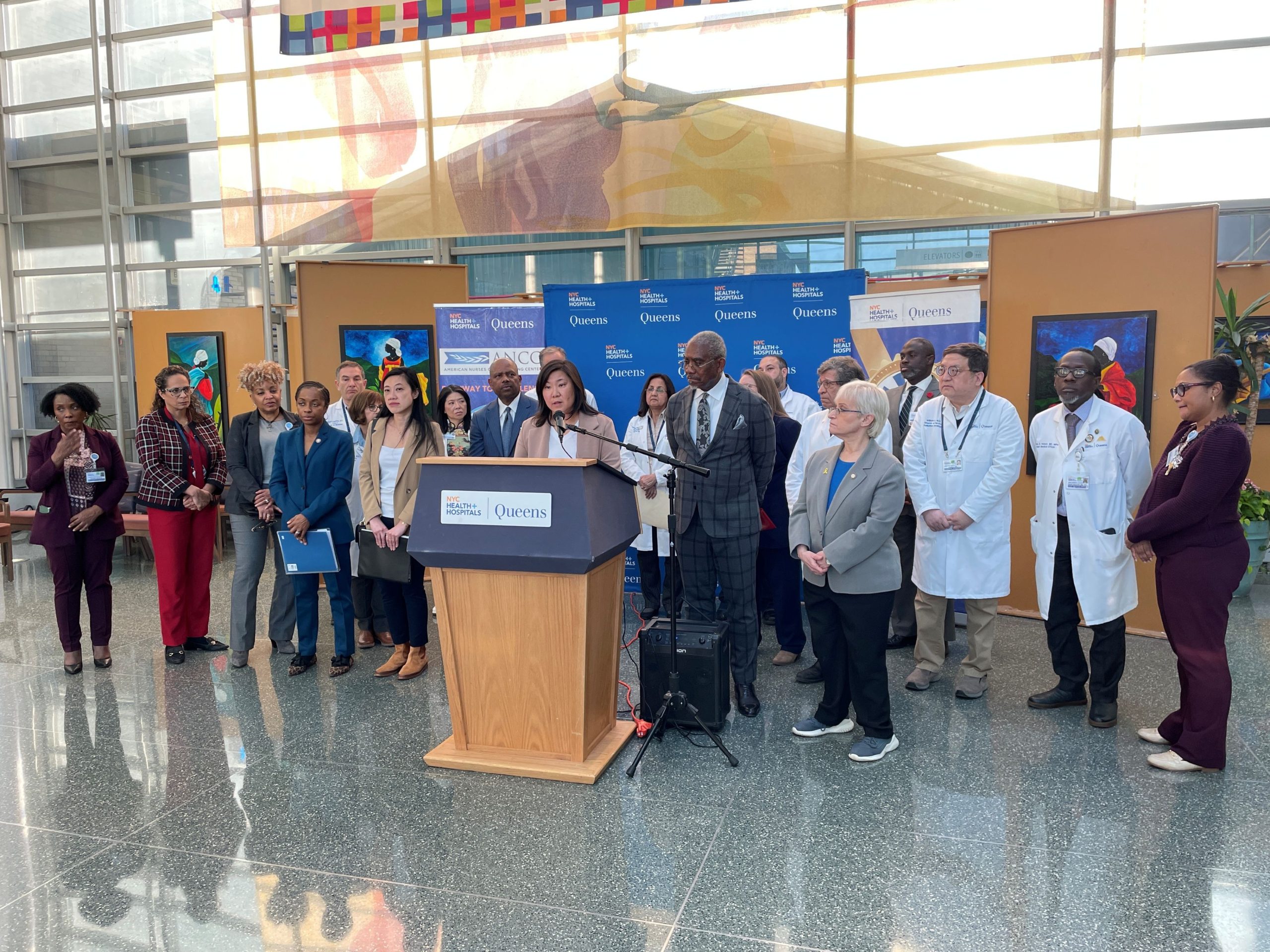
“Our hospitals will get less money, our nursing homes will get less money, and our community health care centers will get less money,” she said. “Right now, we’re going to see a situation where the city and state is going to have to look for a lot of that money.”
On July 30, Meng joined State Senator John Liu to host a roundtable at the Glow Cultural Center in Flushing, bringing together healthcare providers and advocates to discuss the anticipated fallout from the legislation. While the White House has promoted the bill’s tax cuts, Meng and Liu emphasized the deep cuts to programs like the Affordable Care Act, Medicaid, and SNAP, which they say will primarily hurt working-class families and the elderly.
“The Republican majority has called its budget legislation the big beautiful bill,” Meng said. “But I and many of my colleagues call it the big ugly bill because of the damage it will do”
State Senator Liu echoed Meng’s concerns, calling the legislation “a bad, ugly bill.”
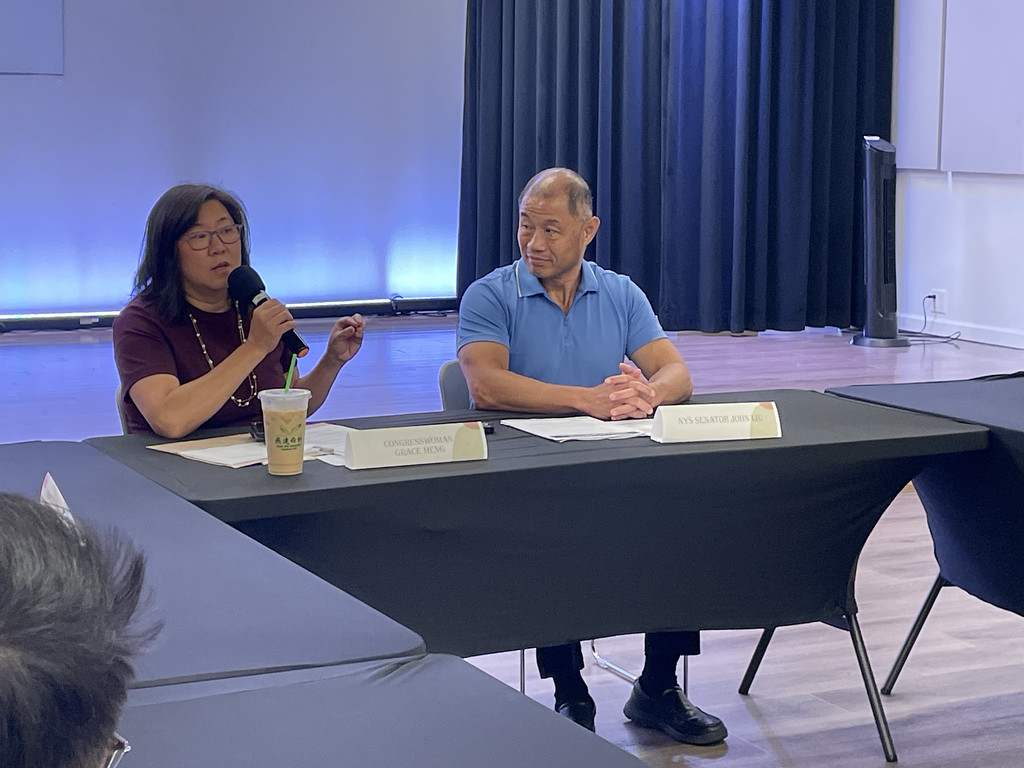
“From vindictive cuts to Medicaid to SNAP benefits and other provisions we all pay for in federal taxes, this bad, ugly bill hurts an enormous number of people in our community and provides zero tax relief to 99% of Queens residents,” Liu said. “The Trump administration has taken from us with their left hand, and taken from us again with their right hand.”
Back in Washington, Meng said she has already heard concerns from local constituents, especially families with aging parents or children who rely on Medicaid-funded services.
“We’ve heard from people, for example, whose parents are in nursing homes,” Meng said. “About 60% of nursing home patients around the country rely on Medicaid. This is especially true in Queens and New York State. We know that there are nursing homes that could actually completely shut down, and we’ve heard concerns, you know, at least two in Queens that could completely shut down. We’re also hearing from moms who are taking care of kids who may have health issues and are unable to work and rely on the Medicaid money so that their kids could get health care,” she added. “They’re really scared because on a typical salary, middle income, salary in New York, that money is that that health care is really high cost and unaffordable, and they literally don’t know how they’re going to get their kids the care that they need.”
Analysts estimate the bill could lead to 1.5 million New Yorkers losing health insurance, threaten SNAP benefits for another million, and slash $8 billion from the state’s hospitals—some of the deepest cuts projected in Queens.
“This affects everyone, right?” Meng said. “People think, oh, it’s only going to help people who are low income. It’s going to affect people in nursing homes. You know, people in nursing homes, the families that send them there, they’re not all low income, they’re middle income. Some of them are high income. They depend on Medicaid to help cover the very expensive costs that nursing homes consist of.”
As efforts to safeguard affordable health care intensify across New York, members of the state’s congressional delegation are speaking out forcefully. On July 9, Protect Our Care New York hosted a press conference with Congressmen Joe Morelle and Ritchie Torres, Congresswoman Laura Gillen, and frontline health care worker Shayna Rinus to condemn the GOP’s vote to enact the most sweeping Medicaid cuts in American history
“Unlike the Affordable Care Act, which was aimed at making health care more accessible, this bill takes significant steps to rip health care away from those who need it the most, it is more than a policy failure,” Congressman Joe Morelle said. “It’s a moral failure. It’s a selling out of working families across the state of New York and across America, and the impacts of these cuts will still tear families apart and jeopardize the lives of our most vulnerable neighbors and and you ask yourself for what? What was the goal? What? What is the rationale for this?”
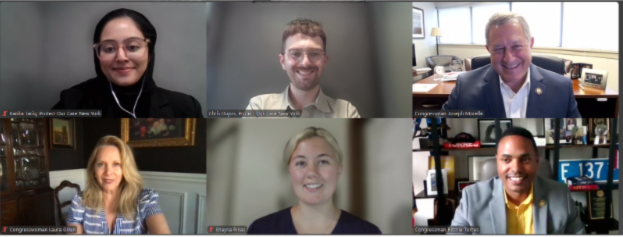
Courtesy Protect our Care New York
Congressman Ritchie Torres echoed the urgency, “It’s a catastrophe, I mean, 1.5 million New Yorkers at a minimum are going to lose health care.” Torres, who grew up relying on Medicaid, emphasized how critical the program is for everything from emergency care to long-term support for disabled and elderly Americans.
Congresswoman Laura Gillen shared stories from New York families she’s spoken to—parents of special needs children, caregivers of seniors, and struggling workers already squeezed by the cost of care. “We had a health care expense crisis before this bill, this is only going to exacerbate it and make it so much worse. But the important thing is, this is not only just about Medicaid recipients. This is also for all of us,” she said. “Health insurance companies came to my office and said, If the hospital and health care systems are going to pass on the cost to patients, which will be passed on to us, then we’re going to raise premiums, so even people with private health insurance are also going to be affected by this bill. It’s a terrible bill.”
Closing the event was Shayna Rinus, a patient care technician and mother of three children with autism. “When I first heard that Medicaid was up for funding cuts to filter out the waste, I was very confused and very scared as to what that meant. You know, I have three boys here. One of them has is in first grade with a reading level of a fourth grader, and he is so incredibly smart. He does math games for fun. He’s doing multiplications and fractions, and he’s only in the first grade. And so when I heard about these cuts to filter out the waste, I’m sitting here going, my child isn’t waste.”
Protect Our Care and the New York Congressional Delegation vowed continued resistance, pledging to amplify public awareness and push for legislative protections to undo the harm. As the speakers made clear: this fight isn’t over—not by a long shot.
Though not enrolled in Medicaid himself, Astoria resident and business owner Mike Cortez sees the issue as deeply personal. “For me, it’s just about being a human being,” he said. Cortez, now 35, recalled relying on Medicaid in his early twenties before finding financial stability. His wife, a speech pathologist with the Department of Education, works with children who depend on Medicaid for vital services. “People need help. They need support,” he said. “Taking away opportunities for those who really rely on it—it’s just inhumane.” Even from his current position of privilege, Cortez worries about what’s lost when access to care becomes a luxury. To him, Medicaid is more than a safety net; it’s a foundation for dignity, particularly in a place as diverse and demanding as New York City.
Cortez also pointed to the broader community impact, particularly in Queens, where growth and gentrification often coexist with deepening inequality. He acknowledged that parts of the proposed bill might benefit him as a bar owner—lower payroll taxes, for instance—but said the trade-offs aren’t worth it. “I prefer people that need help receive help,” he emphasized. Astoria may be booming, but surrounding neighborhoods still struggle, and he worries that Medicaid cuts will accelerate displacement and division. “If it’s not good for one, it’s not good for all,” Cortez said. To lawmakers, his message was clear: “Get your mind out of your pockets. Mind the gap. There’s an opportunity right now to help people—and we shouldn’t waste it.”
Another voice in this conversation is Steven Abraham, a long-time Rego Park resident who sees the issue through the eyes of a senior citizen. In Rego Park, 81-year-old Abraham has lived in the same apartment for over half a century. While he doesn’t qualify for Medicaid—his monthly income from Social Security and a pension places him just above the threshold—he relies on the Medicare Savings Program and extra help from the state to cover his Medicare Part B premiums and keep his prescription costs low. “In a way, it’s unfortunate, but in a way it’s fortunate,” Abraham said, reflecting on his in-between status. “If I qualified, I’d be getting more benefits—but I’d also be making a lot less.” Like many seniors, he feels caught in a system where the balance between financial independence and healthcare access is precarious, and he’s wary of how easily things could change.
Though the current Medicaid cuts don’t directly affect him—at least not yet—Abraham is cautious. He’s heard politicians claim seniors won’t be impacted, but he’s lived long enough to know that political promises often shift. “They say one thing, and something else happens,” he noted. Still, his focus remains largely personal. At 81, in relatively good health, he hopes to stay independent, but he’s aware of others in his community, especially those in nursing homes, who depend on Medicaid every day. If those services are reduced, he worries what the ripple effect could be—especially for those without his level of stability. “You never know,” he said. “Things change.”
In Bushwick, where Wyckoff Heights Medical Center serves as a lifeline for thousands, the stakes are even higher.
While New Yorkers across the city voiced concern about how federal Medicaid cuts could upend their daily lives, the pressure is mounting just as heavily on the hospitals that serve them. At a July 30 press conference held at Wyckoff Heights Medical Center in Bushwick, U.S. Rep. Nydia Velázquez joined hospital leaders and healthcare workers to sound the alarm over what they say is a looming crisis. The “Big Beautiful Bill,” recently signed into law by President Trump, includes sweeping health spending cuts that could result in 10.9 million Americans losing coverage, according to the Congressional Budget Office — and safety-net hospitals like Wyckoff are among the most vulnerable. With more than half of its patients insured through Medicaid and many more underinsured, Wyckoff already operates with thin margins. The coming cuts could force them to reduce services, lay off staff, or even close their doors.
Velázquez emphasized that these cuts won’t just hurt hospitals — they will destabilize entire neighborhoods. Brooklyn alone has nearly 3 million Medicaid enrollees, and in Velázquez’s district, around 45% of residents rely on the program. Healthcare leaders warned that without Medicaid, more patients will skip preventive care, which increases the likelihood of serious illness and emergency visits. That, in turn, strains hospitals further — even for those with private insurance. An analysis by New York hospital associations projected that Velázquez’s district could lose over 800 hospital jobs, while neighboring areas like U.S. Rep. Yvette Clarke’s district could see even more. As Velázquez made clear, this isn’t just a budget issue — it’s a question of equity, access, and survival for the communities most in need.
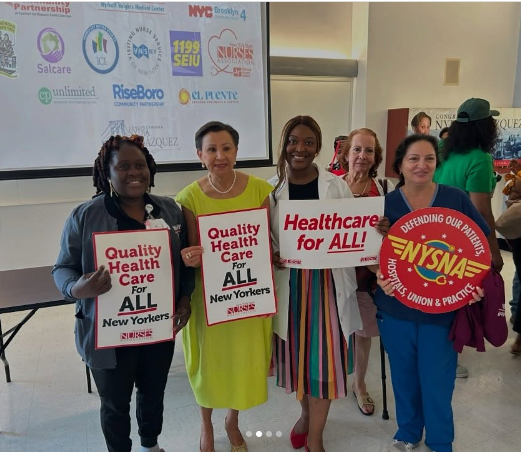
Courtesy Representative Nydia Velázquez


